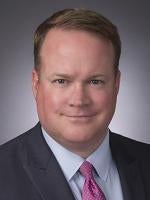On the eve of the holidays, the National Labor Relations Board (NLRB) delivered an early Christmas present to employers with its issuance of new regulations governing the NLRB election process. While not scraping the Obama Board’s controversial 2014 election regulations wholesale, the current Board’s new rules moderate the election processing time frames considerably, allow employers to raise issues of supervisory status before an election is held and give employers a greater opportunity to campaign amongst employee voters in an effort to maintain their union free status. These procedural changes which will become effective in early April 2020 are welcome news for they go a long way towards re-leveling the playing field for employers when they litigate election issues and conduct election campaigns.
Here is a brief description of some of the more important rule changes and an explanation of why they should matter to employers.
-
The new rules eliminate the requirement that a pre-election hearing be held within 8 calendar days of a petition’s filing and extend that hearing date to a more manageable time frame of 14 business
Why This Matters: One of the vices of the Obama Board’s 2014 rules was that it so shortened election process timelines as to deprive employers of reasonable opportunity to properly investigate election issues and to prepare for a possible pre-election hearing (R case hearing). The imminency of the pre-election hearing also gave unions added leverage in negotiation election agreements that obviated the need for a hearing. The new regulations eliminate those problems by more than doubling the time between the filing of a petition and the holding of an R case hearing.
-
The new rules extend the time for the filing of statements of positions by non-petitioning parties, typically employers, from the 7thcalendar day following the filing of a petition to 8 business
Why This Matters: The Obama Board’s 2014 rules instituted a new requirement that a non-petitioning party file a statement of position (SOP) setting forth the issues it intended to raise at the hearing by noon, the day before the hearing. SOPs played a central role in the processing of an election petition since it determined what issues could be raised at the R case hearing and affected the timing of the election. Indeed, a failure to file a SOP could operate as the employer’s waiver of a right to a hearing. Likewise, issues not raised in the SOP could be deemed waived. Finally, if the issues raised by an SOP were deemed insufficient to warrant a hearing, a hearing was cancelled or a “no issue” hearing could be conducted, resulting in the accelerated issuance of a direction of election. By giving an employer 8 full business days following the filing of a petition (instead of 6 ½ calendar days) to respond to a petition with a SOP, the Board gives employers a more reasonable opportunity to identify and effectively stake legal claims to be raised at the R case hearing.
-
The new rules create a new requirement that petitioners file responsive SOPs and that said responsive SOP be filed at least 3 business days before a scheduled pre-election hearing.
Why This Matters: While requiring non-petitioning parties (typically employers) to file SOPs, the Obama Board rules contained no such requirement for the petitioner (typically unions). Accordingly, unlike an employer who had to lay out its election issues as a condition of even getting an issue, unions were under no similar obligation and could litigate election issues by ambush. The new rules eliminate this imbalance by requiring both petitioners and non-petitioners to file SOPs before proceeding to hearing. That way both sides can be prepared to present their respective cases as well as to respond to the other side’s assertions.
-
The new rules re-allow disputes concerning unit scope and voter eligibility, i.e. supervisory status, to be litigated at the pre-election hearing.
Why This Matters: The 2014 Obama Board rules confined pre-election hearings to issues relating to whether a valid question concerning representation existed. Such issues included the petitioner’s status as a labor organization and whether the petitioned for voting/bargaining unit was appropriate for the purposes of collective bargaining. However, issues as to unit inclusion, i.e. whether a particular person or class of persons was a supervisory, managerial employee or confidential employee, were not subjects that could be raised prior to an election. Instead, if one of the parties believed a person or a class of persons to be ineligible, their only option was to challenge the person’s vote for possible post-election resolution should their votes be sufficient in number to affect the election’s ultimate outcome. This limitation on the pre-election litigation of supervisory issues posed serious problems for employers on several counts because it deprived employers of the certainty of knowing who was and wasn’t in the voting unit and who employers could lawfully tell not to engage in union activity or called upon to campaign on behalf of the employer. Further, this supervisory uncertainty tended to breed unfair labor practices since, as the agents of an employer, a supervisor was capable of inadvertently saying and doing things that might violate the NLRA while, if a person was an employee, that same conduct would not violate the law. Employers often manage this risk by giving NLRA compliance training to its managers and supervisors and instructing them not to engage in certain unlawful conduct. But giving such training to persons whose supervisory status was uncertain presented serious problems since if the person taking the training proved to be an employee, then the training itself could be deemed an unfair labor practice. The new rules will address this issue by allowing supervisory status to be an issue in pre-election R case hearings.
-
The new rules reestablish the right to file post hearing briefs in both pre- and post-election hearings.
Why This Matters: Under the Obama election rules, the time honored right to file post-hearing briefs was eliminated. Thus, if an employer wanted to present formal legal arguments in written form to support its position and even though no record evidence remained yet to be taken, its brief had to be filed at the R case hearing. Because of this and because of the Board’s then unreasonably short election processing timeframes, many employers dispensed with the filing of briefs, relying solely upon hastily compiled and presented evidence, thus causing the quality of regional decisions to suffer. The new rules address this problem by not only lengthening the time to a hearing but by re-mandating that employers be given the right to file post-hearing briefs within 5 business days of the close of the hearing.
-
The new rules provide that an election will not be scheduled to take place before the 20th business day after the issuance of a direction of election.
Why This Matters: The Obama Board’s 2014 election rules so streamlined and accelerated the time to election as to deprive employer’s opportunity to mount a political response to a petition through an effective and lawful election campaign and to inform its workforce of the pros and cons of unionization. Moreover, the shortness of the Board’s election timeframes in the 2014 rules made it difficult for employers to negotiate fair election agreements that gave them a reasonable shot of prevailing at the ballot box. The new rules answer these problems by affording employers a more reasonable amount of time within which to conduct a campaign by mandating that no election be held in less than 20 business days following a regional director’s direction of election.
-
The new rules authorize the permissive filing of a request for review by the Board of a Regional Director’s adverse direction of election to be filed within 10 business days of the election direction’s issuance and provides that, if the request is not ruled on by the end of an election, for the impoundment of disputed ballots.
Why This Matters: Employers wishing to take issue with an adverse regional election determination do so by filing a Request for Review (RFR) of the region’s decision with the Board. Departing from time honored Board procedure, the Obama Board’s election rules eliminated pre-election RFRs and allowed employers to challenge such adverse pre-election ruling only after the holding of an election. This new procedure raised questions about due process and rendered many challenges to incorrect adverse regional determinations moot since there was no way to raise them and to have them decided before the election was conducted and election results were known. The new rules address this problem by reinstating but not requiring a pre-election RFR to be filed within 10 business days of an adverse regional determination and by directing that regions impound disputed ballots until after a pre-election RFR is ruled on. That way, the correctness or incorrectness of the region’s actions can be made known and factored into a case before ballots are counted.
-
The new rules prohibit regional directors from certifying the results of an election while a request for review is pending or before the time that a post-election request for review can be filed.
Why This Matters: Under the 2014 Obama Board rules, once an election was held, regions were required to certify election results despite the pendency or possibility of a RFR. As a result, unions would often demand to bargain with an employer and file unfair labor practice charges against an employer even as the Board considered the employer’s RFR and even though, if granted, the RFR could render the certification a nullity. The new rule eliminates the issuance of certification until after RFRs are ruled on, promoting the more orderly litigation of both election and unfair labor practice cases.





 />i
/>i
